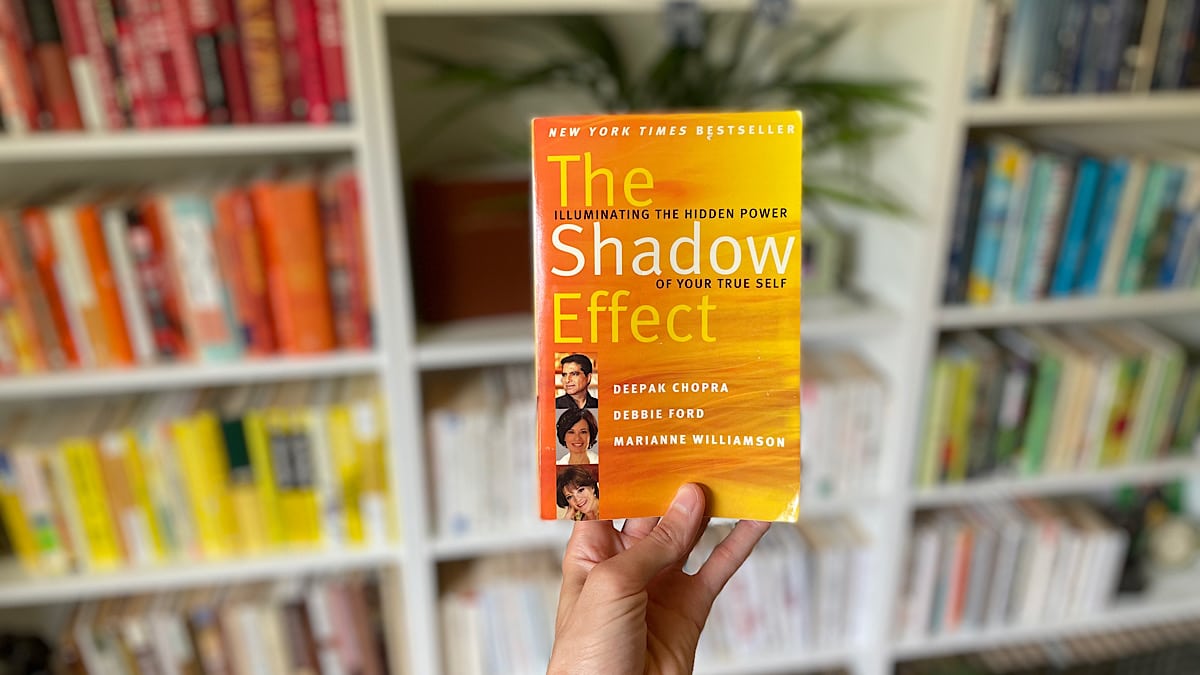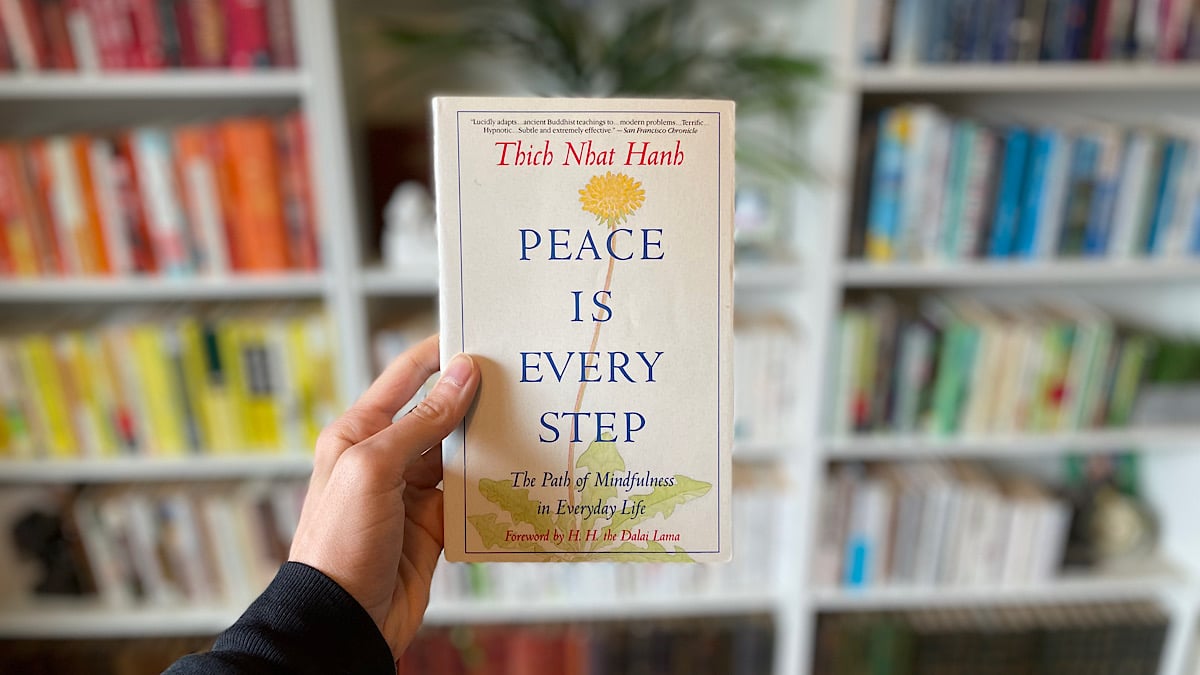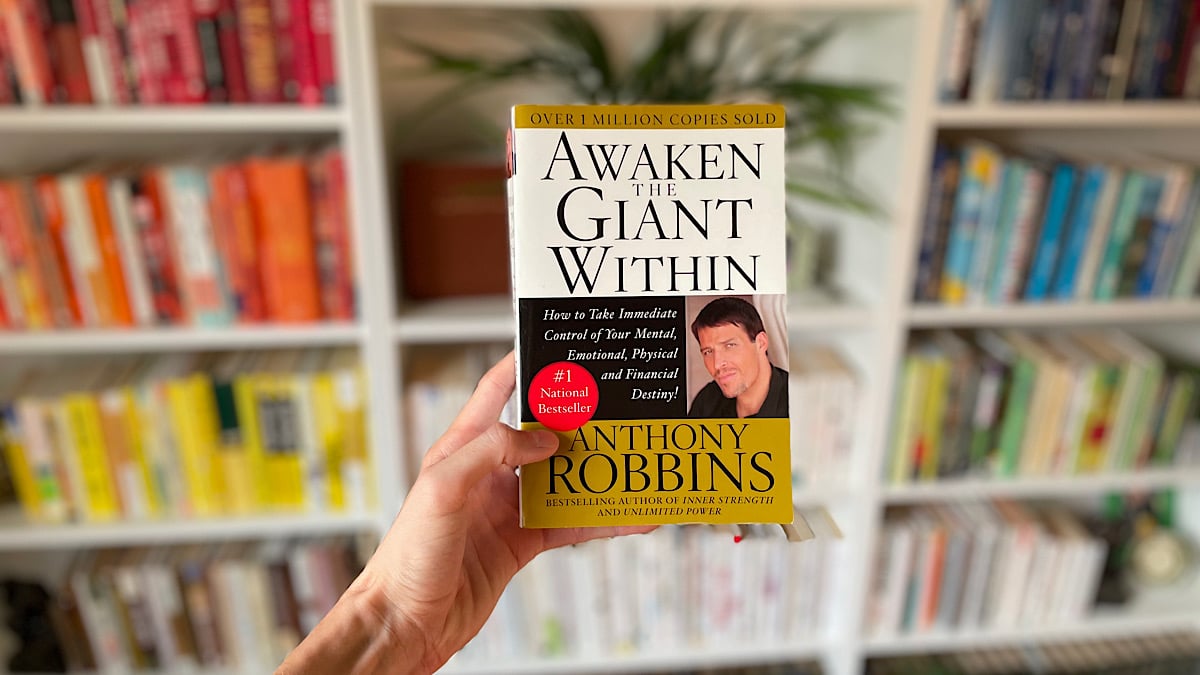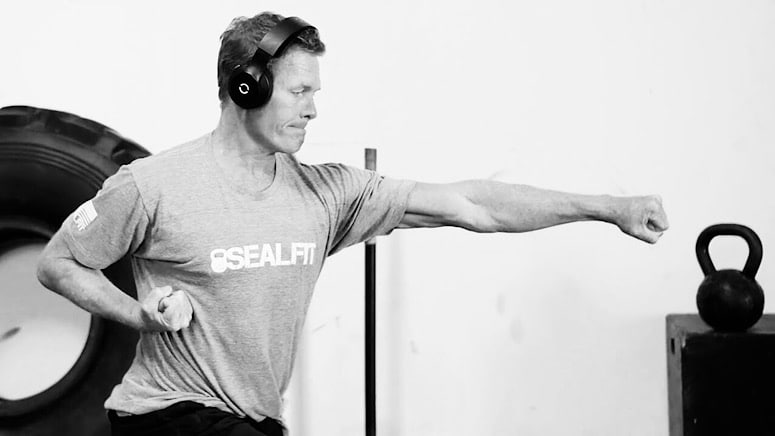Excerpt: There is literally an OCEAN of information in the self-improvement world. How to make sense of it all? Where to start? Who to trust? Read this for help.
Self-improvement can be a complicated and intimidating space to explore—especially for someone who is new to the scene.
The space is overly saturated with books, websites, videos, programs, podcasts, and seminars that are all trying to compete for your attention (and money). How to pick? Where to start? Who to trust? How to make sense of an ocean of information?
Because one thing is for sure—not all self-improvement in that ocean is created equal.
There is some incredibly good content out there and there is some incredibly gimmicky and shallow content.
As someone who has spent a majority of their life immersed in the self-improvement world, I have experienced this discrepancy first hand. And there’s nothing worse than investing in a product or service (or person) that has offered you a way to improve that doesn’t deliver—or worse, just tries to scam you out of your money and leaves you further behind than when you started.
NEW In The Shop: Don’t Let The Tame Ones Tell You How To Live [Poster]
Why We ♥ It: Some of the best advice I (Matt here) ever got was: don’t take life advice from people who aren’t living a life you want to live and don’t take criticism from people you wouldn’t go to for advice. I created this poster to act as a reminder to listen more closely to our role models and less closely to our critics, trolls, and tamed-comfort-zone-hugger acquaintances. It’s also a perfect gift for the outdoor adventurer, travel enthusiast, or solo explorer (or soon to be). Available in print or digital download. 👇🏼
...Want to advertise your book, product, or service? Send inquiries to matt@movemequotes.com.
That said, what might help you sort through all of that information is a hierarchy that organizes what’s most important to self-improvement to what’s least important. An idea that was originally shared with me by Iain Abernethy in a video (with a self-defense context)—the hierarchy makes what you’re looking at (and for) a little more clear.
And once you can start prioritizing your self-improvement efforts, you can start becoming more efficient and effective with your time. And ultimately that’s what we all want isn’t it? A better return on our time (and resources) invested?
So, here it is, the hierarchy for sorting through the self-improvement ocean in order of what’s most important to what’s least. Enjoy.
1) Mindset. Mindset changes everything. This area is, by far, the most important one to focus on. If your mind is right, you will find a way to get done what you know you need to get done. And if your mind is not right, you will find a way to get out of doing what you know needs to get done.
You can put somebody with the right mindset into most any situation and they’ll find a way to stay healthy and fit. And likewise, you can put somebody with the wrong mindset into the perfect situation for a healthy and fit life and they’ll still find a way to become the opposite. Mindset is king.
Whenever there is a solution that is offering you a way to stay more mentally sharp and focused, keep it prioritized. Which is precisely what MMQ aims to do every day.
2) Strategy. Once your head is right, then you can focus on strategies. This is where you have to identify what your goals are and what direction you want to head.
Do you want to be a professional athlete or just feel healthier in your life? Do you want to focus more on building muscle or being able to condition your body to exercise longer (or both)? Do you want to follow a weight lifting routine, pick up a sport, start running, or engage in outdoor activities?
Having a direction matters. And arbitrarily picking and choosing things to do without having a direction is wasted effort. For, how would you even know if you’re heading in the proper direction if you don’t know where you are and where you’re going?
Solutions that offer solid, tried-and-tested, long-term strategies should fall into this category. Things like building better habits, building more valuable skills, or offering you ways to better understand yourself.
3) Tactics. Not the same as strategy, tactics are a more specific breakdown of how you’re going to execute your strategy.
If your strategy is to build more muscle, the tactics would be the where, the when, and the how. This is where you would identity your gym, what times you plan on working out, and how the workouts are to be structured.
This would include the exercises themselves, on which days, the rep and set ranges, the rest time in between sets, and the weights you would be planning to use.
However, if your strategy is to run a marathon, this tactical approach probably wouldn’t make the most sense. And if your mindset is to get as big as Arnold in a month or two, everything else above will fall apart.
Tactical solutions, like pre-defined workout routines, 90 day challenges, yoga apps, etc., should only be sought out after your strategy and mindset are right.
4) Technique. Who cares how to bench press with perfect form if weight lifting isn’t going to help you achieve your goals? Who cares how to run with maximum efficiency if you don’t plan on doing any running training?
Technique is the last step because it only matters if it aligns with your tactics, which should align with your strategy, which should align with your mindset.
If you see an advertisement for how you can improve your Online Advertising Revenue, but you’re not interested in establishing and maintaining an online presence—why subscribe to that offer? Why learn how to build a perfect “sales funnel” if you don’t have anything to sell? Why buy a cookbook if you don’t have the mindset to cook? And so on.
Sometimes you can find all-in-one solutions, like in a mentor, for example.
They can sometimes offer you all four pieces to the hierarchy in one meeting—because they’ve lived through the hierarchy themselves and their energy can be contagious.
The same is true for some of the books, seminars, podcasts, etc., that you might come across and invest in. But, in my experience, they are the exception, not the norm. And, now that you know the hierarchy yourself, you can figure out what exactly people are offering you, too.
Are they selling you techniques or are they offering you insight that can help adjust your mindset? Are they helping you pick your destination or are they telling you how to move towards a destination?
Mindset first. Strategy second. Tactics third. And techniques fourth. Keep it straight and that’s where you’ll head: straight forward in the most efficient and effective way(s). Good luck.
Read Next:
NEW In The Shop: Don’t Let The Tame Ones Tell You How To Live [Poster]
Why We ♥ It: Some of the best advice I (Matt here) ever got was: don’t take life advice from people who aren’t living a life you want to live and don’t take criticism from people you wouldn’t go to for advice. I created this poster to act as a reminder to listen more closely to our role models and less closely to our critics, trolls, and tamed-comfort-zone-hugger acquaintances. It’s also a perfect gift for the outdoor adventurer, travel enthusiast, or solo explorer (or soon to be). Available in print or digital download. 👇🏼
...Want to advertise your book, product, or service? Send inquiries to matt@movemequotes.com.

Written by Matt Hogan
Founder of MoveMe Quotes. On a mission to help busy people do inner work—for better mental health; for healing; for personal growth. Find me on Twitter / IG / Medium. I also share daily insights here. 🌱
It has taken me 1,000’s of hours to build this free library for you. If it has helped you, you can support my continued effort here. ☕️






